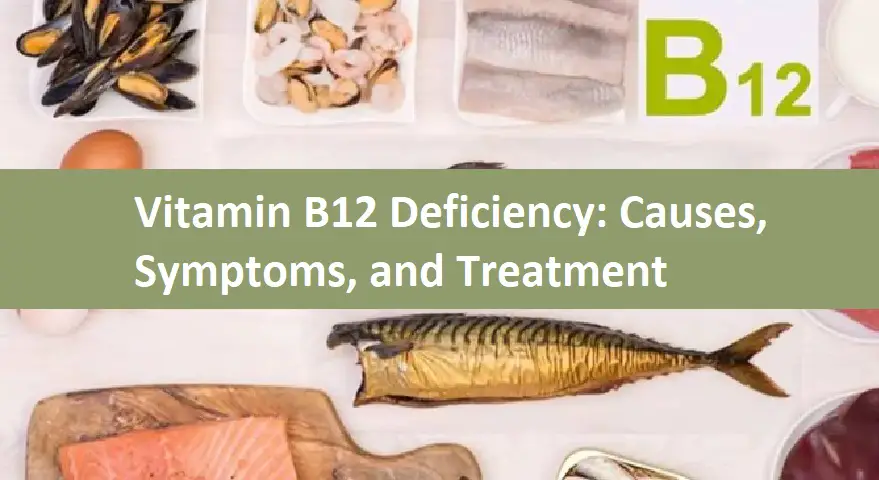As we age, it is important to be aware of the various changes that occur in our bodies and the necessary steps to take if something uncomfortable arises. One of the most common occurrences that can happen to older adults is Vitamin B12 deficiency, which can cause a range of uncomfortable symptoms. In this blog post, we will explore what causes B12 deficiency in older adults and familiarize ourselves with its symptoms and possible treatments.
Explaining B12 Vitamin and Why It’s Important for the Health
Vitamin B12, also known as cobalamin, is one of the eight essential vitamins required for our bodies to function properly. It plays a role in many important body processes, such as red blood cell production, cognitive functioning, and energy metabolism. Without adequate levels of this vitamin, serious health problems can occur.
How B12 Deficiency Affects Our Health
B12 deficiency can cause a wide range of health issues, from mild to severe. Without enough vitamin B12 in the body, red blood cells are unable to be produced effectively, leading to anemia and fatigue. Additionally, cognitive functioning may begin to decline as the brain has difficulty with neurological signals. In extreme cases, a vitamin B12 deficiency can lead to nerve damage and permanent vision loss.
Why B12 Deficiency Is Common Among Seniors
The human body needs a steady supply of B12 for optimal health and functioning. Unfortunately, as people age, their ability to absorb this vitamin from food sources decreases. Due to a decrease in stomach acid production or changes in the digestive system, older adults may be unable to absorb the essential nutrient properly. Additionally, those who take certain medications or follow a vegan or vegetarian diet may be at risk for B12 deficiency.
Symptoms of B12 Deficiency
The symptoms of B12 deficiency can range from mild to severe and can be difficult to spot.
Mild Symptoms
- Fatigue
- Weakness
- Weight loss
- Headaches
- Dizziness
- Blurred vision
- Loss of appetite
- Numbness and tingling in the hands and feet
More Serious Symptoms
- Difficulty balancing or walking
- Memory loss
- Dementia
- Depression
How B12 Deficiency Is Diagnosed
Diagnosing a B12 deficiency can be tricky, as the symptoms can often be mistaken for other medical conditions. To make an accurate diagnosis, a doctor will typically order a blood test to measure the levels of B12 in your body.
How B12 Vitamin Deficiency Is Treated
Fortunately, treating B12 deficiency is relatively straightforward. Patients are typically prescribed a vitamin B12 supplement or advised to make dietary changes with foods that are high in this vitamin, such as animal products and fortified cereals. In some cases, intramuscular injections may be required to boost the levels of B12 in the body quickly.
Conclusion
Vitamin B12 deficiency is a common condition among older adults and can lead to serious consequences if left untreated. Be sure to keep an eye out for the signs and symptoms of this condition, as well as talk to your doctor about any other concerns you may have related to your diet or general health. With the right treatment plan, you can maintain a healthy level of vitamin B12 and enjoy a quality life.

Morgan Elfman is a compassionate writer, dedicated caregiver, and passionate advocate for senior well-being. Born and raised with a deep sense of empathy and a natural inclination towards service, Morgan has devoted her life to making a positive impact on the lives of seniors.
As a writer for www.choiceseniorlife.com, Morgan utilizes his skills to create insightful and informative content that addresses the unique needs and challenges faced by seniors and their families. Her articles not only provide valuable information on health, lifestyle, and care options but also strive to inspire and empower seniors to lead fulfilling lives.
